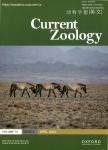Interactive effects of metal pollution and ocean acidification on physiology of marine organisms
金属污染和海洋酸化对海洋生物生理的影响作者机构:Department of Biological Sciences University of North Carolina at Charlotte Charlotte NC 28223 USA
出 版 物:《Current Zoology》 (动物学报(英文版))
年 卷 期:2015年第61卷第4期
页 面:653-668页
核心收录:
学科分类:12[管理学] 1204[管理学-公共管理] 082803[工学-农业生物环境与能源工程] 070703[理学-海洋生物学] 07[理学] 0707[理学-海洋科学] 08[工学] 0828[工学-农业工程] 120405[管理学-土地资源管理]
主 题:CO2 Trace metals Metal accumulation Acid-base homeostasis Bioenergetics Estuaries
摘 要:Changes in the global environment such as ocean acidification (OA) may interact with anthropogenic pollutants including trace metals threatening the integrity of marine ecosystems. We analyze recent studies on the interactive effects of OA and trace metals on marine organisms with a focus on the physiological basis of these interactions. Our analysis shows that the responses to elevated CO2 and metals are strongly dependent on the species, developmental stage, metal biochemistry and the degree of environmental hypercapnia, and cannot be directly predicted from the CO2-induced changes in metal solubility and speciation. The key physiological functions affected by both the OA and trace metal exposures involve acid-base regulation, pro- tein turnover and mitochondrial bioenergetics, reflecting the sensitivity of the underlying molecular and cellular pathways to CO2 and metals. Physiological interactions between elevated CO2 and metals may impact the organisms' capacity to maintain ac- id-base homeostasis and reduce the amount of energy available for fitness-related functions such as growth, development and re- production thereby affecting survival and performance of estuarine populations. Environmental hypercapnia may also affect the marine food webs by altering predator-prey interactions and the trophic transfer of metals in the food chain. However, our under- standing of the degree to which these effects can impact the function and integrity of marine ecosystems is limited due the scar- city of the published research and its bias towards certain taxonomic groups. Future research priorities should include studies of metal x Pco2 interactions focusing on critical physiological functions (including acid-base, protein and energy homeostasis) in a greater range of ecologically and economically important marine species, as well as including the field populations naturally ex- posed (and potentially adapted) to different levels of metals and CO2 in their environments [Curre



